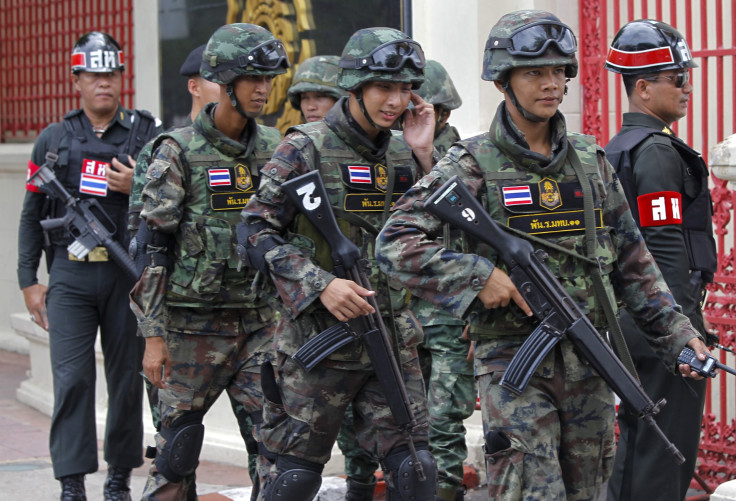Thailand's Senior Military Official Refutes Accusation That Military Coup Was Pre-Planned

Thailand’s senior military official told BBC that the coup that put the army in control of the country's government in May, was not planned.
Lt. Gen. Chatchalerm Chalermsukh, the deputy chief of staff and a member of the military governing body that now runs the country, denied accusations by an opposition leader that the military had planned to overthrow the government for a long time, and added that the coup was only orchestrated to contain a rapidly worsening political situation, BBC reported Thursday.
“If it were planned that would be illegitimate. If you are wondering why this happened so smoothly, that was because forces were already deployed in the city [Bangkok]. So when we declared martial law, there were already joint military and police forces in place in the area,” Chalermsukh said, according to BBC, adding: “So far as I know there was no advanced planning.”
The general also said that ousted leader Thaksin Shinawatra, brother of former Prime Minister Yingluck Shinawatra, who now lives in exile following corruption charges, can return to politics if he can prove that the charges against him are fabricated.
The military leaders plan to form an interim government by August and conduct general elections within a year.
“Everyone who is Thai and is qualified can take part in that election - even the family of Thaksin Shinawatra,” Chalermsukh told BBC, adding: "You will see the way we run things - we are not hunting Thaksin, as we did before. He is free to do anything. We would like to see him come back and fight the legal charges against him. If he is confident he can win, then he will be able to return to politics."
Thailand’s military took control of the government after continuing protests against Yingluck’s administration over a populist rice program for farmers escalated into months of violent clashes between pro- and anti-government factions. The government racked up debt to fund the program and ultimately defaulted on payments to the farmers, leading a court to order the resignation of Yingluck and some of her cabinet ministers.
The military interfered on May 22, after talks between various political parties to reach a solution to the crisis reportedly failed, and has detained Yingluck as well as other leaders since then, to give them “time to think.” And while the international community has criticized the army's takeover, the military has reportedly ensured peace with the help of curfews across the country.
"There are no barbed wire fences, and we have showed these places to human rights groups. We even broadcast pictures of them on national TV. We showed interviews with some of the summonsed people. Everyone was satisfied with this," Chalermsukh said, according to BBC.
© Copyright IBTimes 2024. All rights reserved.












